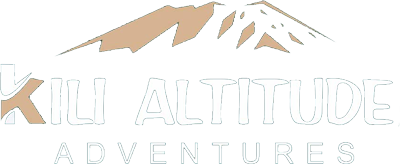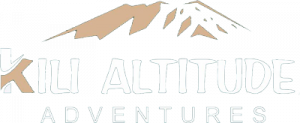Mount Kilimanjaro Rongai Route
The Rongai route is the only route starting on the northern slope of Kilimanjaro. Though this part of the Mountain is rarely visited by hikers, it is no less interesting than the popular southern and western slopes. We recommend Rongai to all those who like reclusive hiking experiences.
Excellent acclimatisation and an easier summit night make these winners by a long way
The Rongai route is the only route that approaches Kilimanjaro from the north, close to the Kenyan border. Though gaining popularity amongst climbers, this route still experiences low crowds. Rongai has a more gradual slope than the mountain’s other routes. It is the preferred route for those looking for an alternative to the popular Marangu route, for those who would like a more remote hike, and for those who are climbing during the rainy season (the north side receives less precipitation). Rongai is a moderately difficult route and is highly recommended, especially for those with less backpacking experience. Although the scenery is not as varied as the western routes, Rongai makes up for this by passing through true wilderness areas for nearly the entire way. Descent is made via the Marangu route. Kili Altitude Adventures offers Rongai as a seven day group climb or a 6 or 7 Days Kilimanjaro Private Climb. The 6-day variation does not have an acclimatization day on day four at Mawenzi Turn Hut
7 – Day Rongai Route
Day 1: Drive to Kilimanjaro National Park Rongai Gate (Nale Moru), Hike to Simba Camp (LD)
Drive to the attractive wooden village of Nale Moru (about 2 hours including a stop to get permits at Marangu). After signing in and preparing the porters, you will begin the hike on a wide path that winds through fields of maize and potatoes before entering the pine forest. The track then starts to climb consistently but gently through an attractive forest that shelters a variety of wildlife. The forest begins to thin out and the first camp is at the edge of the moorland zone with extensive views over the Kenyan plains.
— Elevation: 2000m/6560ft to 2650m/8700ft
— Distance: 6km/4mi
— Hiking Time: 3-4 hours
— Habitat: Montane Forest
Meals included: Lunch, Dinner
Budget Accommodations: Simba Camp
Day 2: Hike Simba Camp to Second Cave (BLD)
The morning hike is a steady ascent up to the Second Cave with superb views of Kibo and the Eastern ice fields on the crater rim.
— Elevation: 2650m/8700ft to 3450m/11,300ft
— Distance: 6km/4mi
— Walking Time: 3-4 hours
— Habitat: Moorland
Meals included: Breakfast, Lunch, Dinner
Budget Accommodations: Second Cave Camp
Day 3: Hike Second Cave to Kikelewa Camp (BLD)
Head out across the moorland on a smaller path towards the jagged peaks of Mawenzi. The campsite is in a sheltered valley with giant senecios nearby.
— Elevation: 3450m/11,300ft to 3600m/11,800ft
— Distance: 9km/5mi
— Walking Time: 2-3 hours
— Habitat: Semi-desert
Meals included: Breakfast, Lunch, Dinner
Budget Accommodations: Kikelewa Camp
Day 4: Hike Kikelewa Camp to Mawenzi Tarn (BLD)
A short but steep climb up grassy slopes is rewarded by superb views. Leave the vegetation behind shortly before reaching the next camp at Mawenzi Tarn, spectacularly situated in a cirque directly beneath the towering spires of Mawenzi. The afternoon will be free to rest or explore the surrounding area as an aid to acclimatization. If you are spending an extra day on the mountain, you will camp for two nights here. You can hike up and around Mawenzi for your acclimatization hike.
— Elevation: 3600m/11,800ft to 4330m/14,200ft
— Distance: 6km/4mi
— Walking Time: 3-4 hours
— Habitat: Semi-desert
Meals included: Breakfast, Lunch, Dinner
Budget Accommodations: Mawenzi Tarn Camp
Day 5: Hike Mawenzi Tarn to Kibo Hut (BLD)
Cross the lunar desert of the ‘Saddle’ between Mawenzi and Kibo to reach the Kibo campsite at the bottom of the Kibo crater wall. The remainder of the day is spent resting in preparation for the final ascent very early.
— Elevation: 4330m/14,200ft to 4750m/15,600ft
— Distance: 9km/5mi
— Hiking Time: 4-5 hours
— Habitat: Alpine Desert
Meals included: Breakfast, Lunch, Dinner
Budget Accommodations: Kibo Hut Camp
Day 6: Kibo Camp to Summit and Horombo Hut (BLD)
Very early in the morning (midnight to 2 am), commence the climb to the summit on steep and heavy scree or snow up to Gilman’s Point located on the crater rim (elev 5700m/18,700ft). Continuing, we now ascend to Uhuru Peak, which is the highest point in Africa. There are unbelievable views at every turn. Have your picture taken at the summit to show your friends and family. From here we descend, stopping for lunch and a rest at Kibo before continuing to the Horombo encampment. The beginning of this climb is done in the dark and requires headlamps or flashlights. It will be very cold until you start descending, so you will need all of your warm layers. This is by far the most difficult part of the trek with many switchbacks. Going slowly “pole pole” and having an optimistic attitude will get you there!
— Elevation: 4700m/15,500ft to 5895m/19,340ft
— Down to 3700m/12,200ft
— Distance: 6km/4mi up / 15km/9mi down
— Hiking Time: 6-8 hours up / 15km/9mi down
— Habitat: Alpine Desert
Meals included: Breakfast, Lunch, Dinner
Budget Accommodations: Horombo Hut Camp
Day 7: Hike Horombo Hut to the trailhead, drive to Moshi (B)
After breakfast, a steady descent takes us down through moorland to the Mandara Hut. Continue descending through the lush forest path to the National Park gate at Marangu. At lower elevations, it can be wet and muddy. Gaiters and trekking poles will help. Shorts and t-shirts will probably be plenty to wear (keep rain gear and warmer clothing handy). A vehicle will meet you at Marangu village to drive you back to your hotel in Moshi (about 1 hour). Don’t forget to tip your guides and porters. It is time for celebration!
— Elevation: 3700m/12,200ft to 1700m/5500ft
— Distance: 20km/12.5mi
— Hiking Time: 4-5 hours
— Habitat: Forest
Meals included: Breakfast
Price Inclusive
- All accommodations per itinerary
- All meals per itinerary (B=Breakfast, L=Lunch, D=Dinner)
- All tours and entrance fees per itinerary (unless listed as excluded)
- All transportation and transfers per itinerary
- 2 nights 3-star hotel in Moshi (upgrades available)
- Round-trip Kilimanjaro Airport transfers (shared)
- National Park gate fees
- Transport from Moshi to trail head and return to Moshi
- Camping fees
- Certified, experienced, English-speaking guides for all routes
- Salaries for all crew members
- Rescue fees (as required by the national park)
- Tents, foam sleeping pads, cooking equipment, and eating utensils
- Oximeters
- Emergency Oxygen (2L canister)
Price Exclusive
- International and domestic flights
- Meals not listed
- Beverages and alcohol
- Tips for guides, drivers, hotel staff
- Optional tours
- Single room supplement
- Personal expenses (visas, airport taxes, Internet, etc.)
- Tips for guides, porters, and cooks (budget $450-650/person)
- Sleeping bags and personal gear
- $50 for a single tent
- Low season discount in April/May

